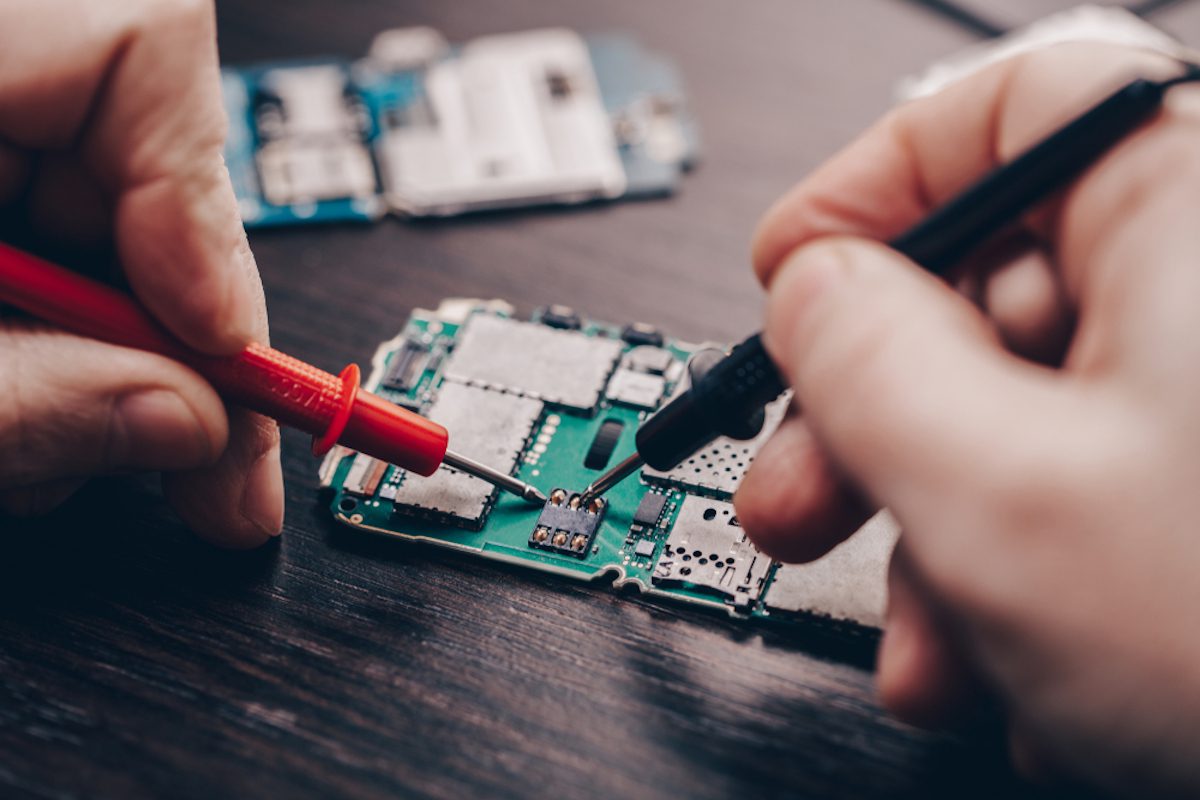
Black Friday is fast-approaching, bringing massive discounts on products in stores and online. Yet the annual sales event can also have a negative impact on the environment, says Christian McBride, founder and CEO of recycling firm GSUK
British shoppers are expected to spend £7 billion on 29 November during Black Friday and on the following Cyber Monday. The Black Friday shopping experience – offering goods at substantial discounts – is built around encouraging shoppers to make impulse purchases. While this is great for sales, there is an unfortunate spike in returns from people that decide they are dissatisfied with their purchases. In 2018, the cost of these returns to UK retailers was put at £362 million.
Returns impact retailers financially – eating into their profits during an important shopping peak period. However, when it comes to consumer technology products such as smartphones, tablets, laptops and TVs, the issue of returns is even more problematic. Such items are not as easy to recondition and get back into stock, particularly if they are faulty. Retailers can find themselves left with stock they are unable to resell. Not only does this mean there is value going to waste, but it also creates a sustainability issue.
Technology is constantly evolving, leaving former generations of devices and accessories obsolete. As many as 40 million devices in the UK are sitting in people’s drawers collecting dust. Some people simply throw their old phones out and they drift through the typical waste stream – 1.4 million tonnes of electronic waste is sent to landfill every year in the UK, where it releases toxins into the air, water, and soil. Given how increasingly important sustainability is to consumers (73 percent of millennials are willing to pay more for sustainable goods) Black Friday is an issue that many tech retailers will want to address.
New life for old tech
There is a more ethical way of recovering value from returned consumer tech products that is a win/win for the environment and for the retailer. Retailers need to deliver optimum value to customers in a sustainable way, finding new solutions for the recovery and redistribution of consumer technology goods. Through sustainable processes, retailers can breathe new life into unwanted technology, ensuring as little as possible goes to waste. At the same time, these recycled products can be sold again, providing new revenue streams.
Recycling facilities are increasingly working with retailers to find solutions for the recovery and redistribution of consumer technology goods. Rather than ending up as landfill, they work to recondition accessories and devices, so they are as good as new. Recycling companies then find new users for these products, so their life cycle is extended in an ethical, sustainable and circular way.

The environmental benefit of this approach is considerable. Take smartphones as just one example: of the 17 rare earth metals in existence, 16 are components in smartphones, including platinum, gold and silver. According to a recent study by the Royal Society of Chemistry, some of these precious metals are expected to run out in the next 100 years if more sustainable alternatives are not sought.
On average each person in the UK throws away 20-25kg of e-waste every year. To put that into perspective, a small street of 15 or so households will be throwing away the equivalent weight of an average car in unwanted electronic goods every year. This is an astonishing waste of (still) valuable resources.
There is almost nothing within an electronic device that cannot be reused. Even a device that has been smashed into pieces might be combined with another device to create something new. If not, the components (such as camera modules, batteries, or even external buttons) have a resale value. The motherboard of a typical smartphone for example, which holds together many of the crucial components of a computer (including the central processing unit (CPU), memory and connectors for input and output devices) is valued at around £250.
Black Friday and Cyber Monday, along with Boxing Day sales, are becoming critical to the profitability of retailers, who bank upon a surge in purchases. The key now is to work towards a more sustainable approach to such sales events, focusing squarely on the recovery and resale of returned consumer tech goods. Doing so will benefit the environment while creating new sources of profit for retailers.








